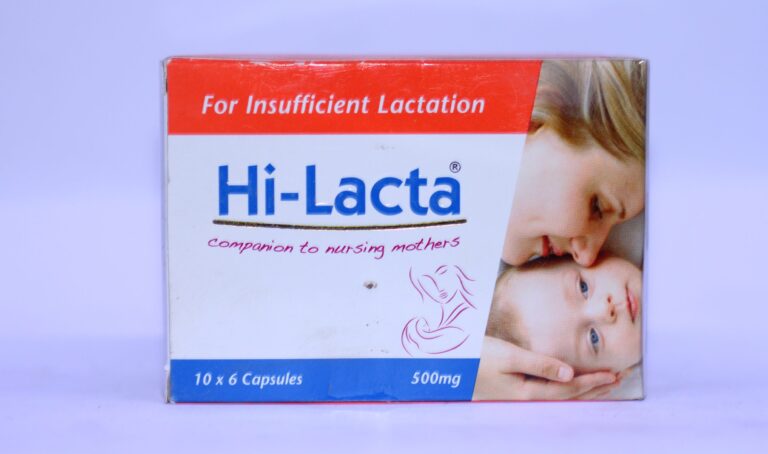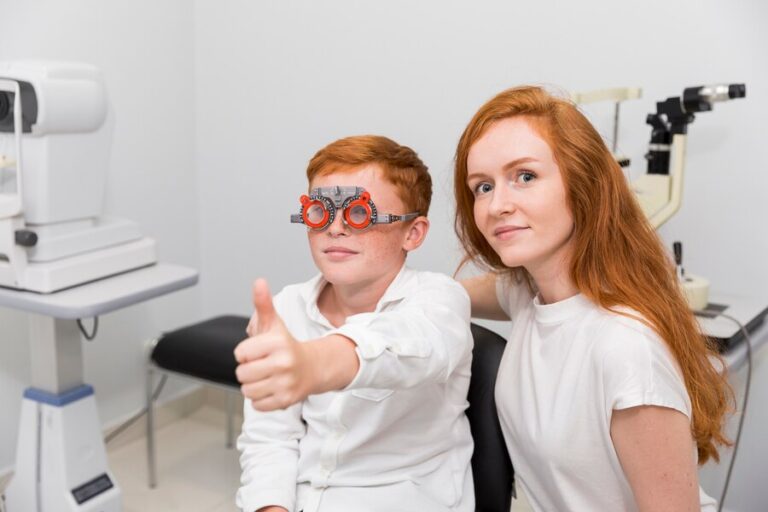Emergency vs. Routine Dental Care: What Services Are Included in Each?
Have you ever wondered what truly comprehensive dental care looks like? Whether it’s an unexpected toothache or your bi-annual cleaning, it’s essential to know what’s covered in your dental plan.
This guide is designed to uncover all the ins and outs, giving you peace of mind from urgent treatments to routine dental care. Imagine never having to worry about hidden costs when it comes to your oral health-sounds great, right?
From emergency procedures to regular check-ups, understanding your coverage can save you time, stress, and money. Dive in to learn how to maximize your benefits and keep your smile healthy and bright. Whether you’re a new patient or have been with us for years, this guide has something for everyone.
Let’s take the first step towards a healthier smile together!
Toothache Relief
Toothaches can be very uncomfortable and sometimes signal serious dental issues. Knowing how to relieve a toothache can help you manage the pain until you see a dentist.
For routine check-ups, your dentist examines your teeth and gums to catch problems early before they lead to severe pain. Regular cleanings and exams help prevent toothaches by keeping your mouth healthy.
In an emergency, a toothache might be due to severe pain from cavities, infections, or a cracked tooth. If you experience sudden or intense pain, it’s important to contact your dentist immediately. They can determine the cause and provide the right treatment.
While waiting for your appointment, there are simple ways to ease the pain. Rinsing your mouth with warm salt water can reduce swelling and clean the area. Over-the-counter pain relievers, like ibuprofen, can help manage severe pain. Avoid very hot or cold foods, as these can make the pain worse.
Your dentist will check the painful tooth to find out what’s wrong. Depending on the problem, they might need to fill a cavity, perform a root canal, or treat an infection.
Good dental care at home, including brushing and flossing daily, helps prevent toothaches. Regular visits to the dentist ensure that any issues are caught early, reducing the risk of severe pain.
Don’t let severe pain ruin your day-discover simple treatments and ways to prevent toothaches in the future. Explore this guide to uncover all that’s covered here!
Broken or Fractured Teeth Repair
Broken or fractured teeth can happen suddenly and are a common type of dental trauma. This guide will help you understand how to fix broken teeth, from urgent treatments to regular check-ups.
Learn what to do right away if you break a tooth and the steps for quick care. Immediate help can save and fix your damaged teeth. Discover different ways to repair teeth, like bonding, crowns, or veneers, to make them strong again.
Knowing what your dental plan covers can reduce stress during these emergencies. It’s also important to protect your teeth from future damage, so explore how regular check-ups can keep your smile healthy. Uncover all that’s covered here and be ready for any dental trauma.
Knocked-Out Tooth Treatment
A knocked-out tooth is a serious dental emergency that requires quick action to save your oral health. This guide will help you understand what to do if a tooth gets knocked out, from urgent treatments to regular check-ups.
Learn the immediate steps to take, such as keeping the tooth moist and seeking dental care right away. Quick treatment can often save the tooth. Explore various methods for re-implanting the tooth and restoring your smile.
Knowing what your dental plan covers can make these emergencies less stressful. Regular check-ups are also important to ensure your teeth stay healthy and strong, preventing future problems. Uncover all that’s covered here so you’re prepared to handle a knocked-out tooth and maintain good oral health.
Dental Abscess Management
A dental abscess is a painful and serious problem that needs quick care. This guide will help you understand how to handle a dental abscess, from urgent treatments to regular check-ups. Learn to spot the signs of an abscess, like severe pain, swelling, and fever.
Getting help fast is important to stop the infection from spreading. Find out about treatments such as draining the abscess and taking antibiotics to fight the infection. Knowing what your dental plan covers can make dealing with a dental emergency less stressful.
Regular check-ups are also key to catching and preventing abscesses early, keeping your teeth and gums healthy. Uncover all that’s covered here so you’re ready to handle a dental abscess and keep your mouth healthy.
Lost Crown or Filling Replacement
Losing a crown or filling can be alarming, but it’s something that dentists handle often. Crowns and fillings are used to repair damaged teeth. Crowns cover a tooth completely, while fillings fill in areas where decay has been removed.
For routine check-ups, your dentist will examine your crowns and fillings to ensure they are in good shape. If they find any issues, they can fix them before they become a bigger problem.
In an emergency situation, if you lose a crown or filling, it is important to see your dentist as soon as possible. Without the crown or filling, the tooth is exposed and can become painful or get infected. Until you get to the dentist, try to keep the area clean and avoid chewing on that side of your mouth.
When you visit the dentist, they will clean the area and replace the lost crown or filling. Sometimes, they might need to make a new crown if the old one is damaged. This process may take a couple of visits.
Preventing problems with crowns and fillings involves good oral hygiene. Brush and floss daily, and avoid very hard or sticky foods that can damage dental work. Regular dental visits also help keep your crowns and fillings in good condition.
Discover various options in cosmetic dentistry to replace lost crowns or fillings, ensuring your smile looks and feels great. Knowing what your dental plan covers can make these emergencies less stressful.
Teeth Cleaning
Understanding the difference between emergency and routine dental care is important. Emergency dental care includes urgent services like fixing broken teeth, treating severe toothaches, or addressing infections.
These issues need immediate attention to prevent further damage and pain. On the other hand, routine dental care covers regular check-ups and maintenance. This includes teeth cleaning, fillings, and exams. Teeth cleaning is a key part of this.
During a cleaning, your dentist will remove plaque and tartar from your teeth. They will also check for signs of decay or gum disease.
Routine care helps keep your teeth healthy and can catch problems early. Emergency care is for serious issues that need quick treatment. Knowing when to seek each type of care ensures your smile stays bright and healthy.
Cavity Fillings
Cavity fillings are a common dental treatment used to fix teeth that have been damaged by decay. When your dentist finds a cavity, they will first clean out the decayed part of the tooth. This helps to stop further damage and gets the tooth ready for the filling.
For routine check-ups, your dentist will look for signs of cavities during your visit. If a cavity is found early, it can be treated quickly, often in one visit. Regular check-ups help prevent cavities from getting worse.
Emergency dental treatment for a cavity is needed when you have severe pain or an infection. This might happen if a cavity is left untreated and becomes deep. In such cases, you should see a dentist right away to avoid more serious problems.
Fillings come in different materials, like silver, gold, or tooth-colored resin. Your dentist will help you choose the best one based on the cavity’s location and your budget.
Remember, good dental care at home, like brushing and flossing daily, can help prevent cavities. Regular visits to the dentist also play a key role in keeping your teeth healthy and strong.
Fluoride Treatments
Fluoride treatments are a simple and effective way to protect your teeth from cavities. Fluoride is a natural mineral that helps strengthen tooth enamel, making it harder for decay to start.
During routine check-ups, your dentist might suggest a fluoride treatment if they think your teeth need extra protection. This treatment is quick and painless. The dentist will apply a gel, foam, or varnish with a high level of fluoride to your teeth. It only takes a few minutes, but the benefits can last for several months.
For urgent care, if you have a lot of cavities or weak enamel, your dentist might recommend more frequent fluoride treatments. This can help stop further damage and keep your teeth strong.
Fluoride is also found in many kinds of toothpaste and some mouth rinses. Using these products at home can give you extra protection. Drinking tap water with fluoride is another easy way to help your teeth stay healthy.
Good dental habits, like brushing twice a day and flossing, combined with regular fluoride treatments, can help you avoid cavities and keep your smile bright. Regular dentist visits are important to catch any problems early and keep your teeth in top shape.
X-Rays and Diagnostics
X-rays are important tools that dentists use to see what’s happening inside your teeth and gums. They help find problems that can’t be seen during a regular check-up.
During routine check-ups, your dentist might take X-rays to look for hidden issues, like cavities between teeth or bone loss from gum disease. These images provide a clear picture of your dental health and help the dentist plan any needed treatments.
In emergency situations, X-rays are also very helpful. If you have severe pain or a dental injury, an X-ray can show the exact problem. This helps the dentist decide the best way to treat you quickly and effectively.
The process of taking an X-ray is simple and painless. You’ll bite down on a small piece of plastic while a machine takes pictures of your mouth. The entire process only takes a few minutes.
With the information from X-rays, your dentist can diagnose issues early, often before you feel any pain. This early detection makes treatment easier and more effective.
Regular dental visits, including X-rays when needed, are key to keeping your teeth and gums healthy. Good dental care at home, combined with professional check-ups, helps prevent problems and keeps your smile bright.
Regular Check-Ups
Regular check-ups are essential for keeping your teeth and gums healthy. During these visits, your dentist will clean your teeth and check for any problems.
At a routine check-up, the dentist will first clean your teeth to remove plaque and tartar. This helps prevent cavities and gum disease. They will also check your teeth and gums for signs of decay, infections, or other issues. If they find anything wrong, they can treat it early before it becomes a bigger problem.
Regular check-ups are not just about cleaning; they also include X-rays and diagnostics. X-rays help the dentist see problems that are not visible during a regular exam, like cavities between teeth or bone loss. This helps in planning the right treatment.
If you experience severe pain or have an urgent dental issue, you should still see your dentist immediately. However, regular check-ups can often prevent these emergencies by catching problems early.
Good dental habits at home, like brushing and flossing daily, are important. But regular visits to the dentist ensure that your teeth and gums stay healthy.
In summary, regular check-ups are a key part of dental care. They help keep your mouth healthy and free from serious problems. Make sure to visit your dentist regularly for the best oral health.
Keeping Your Smile Bright with Routine Dental Care
Routine dental care is essential for a healthy, radiant smile. Regular check-ups allow dentists to catch and treat problems early, preventing severe issues down the line.
Good habits at home, such as daily brushing and flossing, complement these visits by maintaining oral hygiene. By making dental visits a part of your routine, you ensure long-lasting dental health and avoid emergency treatments.
Prioritizing routine dental care not only keeps your teeth and gums in excellent condition but also enhances your overall well-being. Invest in your smile today for a brighter, healthier tomorrow.
Did you find this article helpful? You can check out our website for more awesome content like this.







